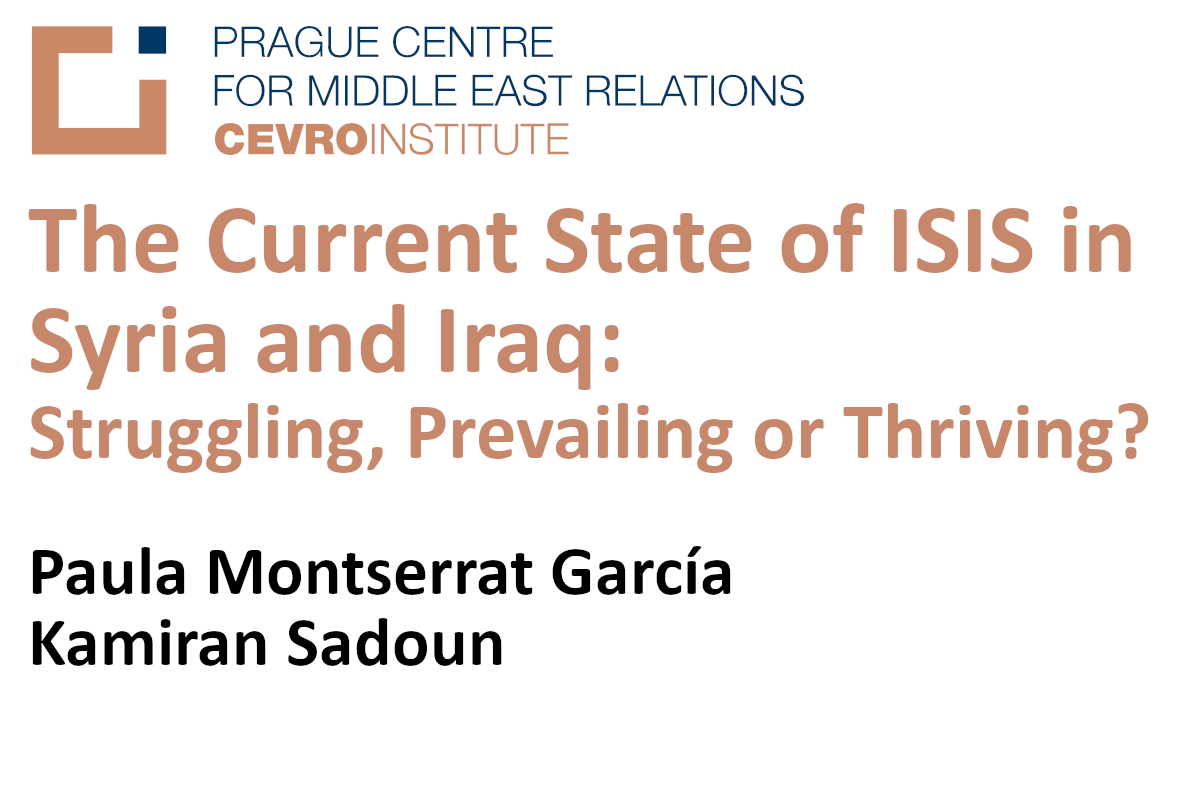Webinar: “The Current State of ISIS in Syria and Iraq: Struggling, Prevailing or Thriving?”
Date of publication: February 1, 2021

Prague Centre for Middle East Relations (PCMR) of CEVRO Institute organized a webinar entitled “The Current State of ISIS in Syria and Iraq: Struggling, Prevailing or Thriving?” The event was held online on Thursday, January 28, 2021. Our distinguished guests were:
- Kamiran Sadoun, Independent Journalist and Fixer, Kurdistan Region of Iraq and Syria.
- Paula Montserrat García, Researcher at the Center for Civilians in Conflict (CIVIC), Kurdistan Region of Iraq.
The session provided an update on the current state of the so-called Islamic State of Iraq and Syria (ISIS) and its activities and strategies in Iraq and Syria. ISIS’ current capabilities, modus operandi, prevailing safe havens and spaces of operations were assessed as well as impacts of ISIS activities on civilians. Moreover, we discussed the successes and pitfalls of local authorities in response to ISIS activities, may it the Syrian Democratic Forces-led administration, the Syrian regime, or the federal and Kurdistan regional governments in Iraq.
Kamiran Sadoun is an award winning Kurdish journalist and news Fixer covering the news of Rojava (Syrian Kurdistan) and Bashour (Iraqi Kurdistan) since 2014, and covered all battles against ISIS from Khanaqin in Iraq till Kobani in Syria. After ISIS’ territorial defeat, he continued to extensively work in Syria and Iraq. In 2020, he won the 2020 Kurt Schork News Fixer Award in International Journalism. In 2015-17, he worked with the NPR covering both the Kurdistan Region and Rojava. Kamiran also worked as a news fixer and wrote for a number of agencies including The Telegraph, The Independent, The Times, Washington Post, The New York Times, The Los Angeles Times, or the ABC News.
Paula Montserrat García is a researcher at the Center for Civilians in Conflict (CIVIC) based in Iraq. At CIVIC, Paula has conducted research on threats to civilian protection in Kirkuk province caused by state and non-state actors, security and political fragmentation in Sinjar and its effects on the stabilization of the area, and on the impact security actors and civil authorities are having on the return of IDPs to their areas of origin and the issue of perceived ISIS affiliated families. Prior to that, she worked at the American University of Kurdistan in Dohuk (AUK) as researcher and lecturer. Her research focused on the dynamics between political and security actors, the obstacles for the return of IDPs, and the competing regional interests at stake in Sinjar and West Nineveh.

